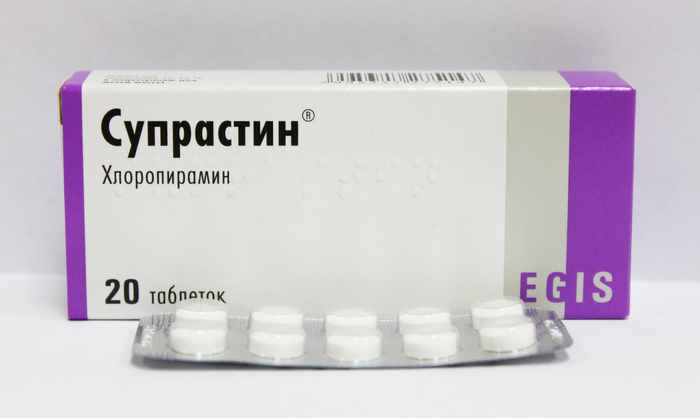Cataracts - a disease of the organ of vision associated with clouding of the eye lens. The disease is dangerous pathology, an effective method of treatment which - only timely conduct microsurgical operations. Before surgery the patient rents to analyze blood, urine, ECG and the examination passes the eyeball.
The content of the article:
- 1 What is the operation of cataract
- 2 Advantages and disadvantages of cataract surgery
- 3 Indications from cataract surgery
- 4 Contraindications to cataract surgery from
- 5 What you need to pass the examination before surgery
- 6 Preparation for surgery of cataract
- 7 The procedure of cataract surgery
- 8 Recovery after surgery of cataract
- 9 How long the result will remain after the operation of cataract
- 10 Possible complications after surgery of cataract
- 11 Videos about the operation of cataract
What is the operation of cataract
Surgery to remove cataracts - a modern method of microsurgical treatment, which is called phacoemulsification. Before the operation the patient hands over a standard list of tests, which reflect his overall health.
The very method of cataract treatment involves surgically darkened lens fragmentation by ultrasound. Its further extraction of the eyeball is carried out with the use of irrigation and aspiration method.
After removal of the lens, which no longer fulfills its function for the light rays into the cavity of the eyeball implanted an artificial lens. This element is worn analogs of the eye, it refracts the light passing on the optic nerve quality image without reducing the quality of focusing.
The operation lasts 10 to 15 minutes. depending on the complexity of microsurgical interventions. The cost of medical services for the treatment of cataracts depends on what lens is implanted into the cavity of the eyeball.
The table below shows the average price of cataract surgery in view of the quality of implantable lenses that will perform the function of the lens.
| View phacoemulsification cataract. | Cost microsurgery |
| With the installation of an intraocular lens. | From 38,000 to 41,000 rubles. |
| Performed the implantation of intraocular lenses in cataract complicated by conditions. | From 59000 to 63000 rubles. |
| Setting an intraocular lens which has improved optical characteristics. | From 72000 to 75000 rubles. |
| Implantation of toric intraocular lens type. | From 81000 to 85000 rubles. |
| Installation of multifocal intraocular lens type. | From 119,000 to 125,000 rubles. |
| The cavity of the eye implanted multifocal toric lens. | From 127,000 to 134,000 rubles. |
| Installation is made trifocal intraocular lens type. | From 170,000 to 175,000 rubles. |
| Conducting phacoemulsification method femtosecond (foresees the use of a laser device which eliminates incision using a scalpel is less traumatic way, accelerating recovery of postoperative ocular apple). | From 52000 to 56000 rubles. |

The final cost of microsurgery cataract surgery clinic determined leadership and its pricing. Treatment is carried out, both in public and private health facilities.
The patient chooses blade where wished to pass cataract therapy. When applying for medical help the public hospital, the patient receives a referral for an operation in the regional center of ophthalmology at the place of residence.
Advantages and disadvantages of cataract surgery
Tests before surgery (cataract requires careful diagnosis) shall be at the place of surgery. Like any other method of treatment, comprising the surgical treatment of body, it has its advantages and disadvantages are obvious.
Pros microsurgical removal of a cataract are in the following aspects:
- operation is performed in 1 day without several surgical steps;
- the patient is not necessary to be a long time in the hospital ophthalmology department;
- all manipulations take place on an outpatient basis;
- the operation is under the influence of a local anesthetic, which is administered drop without painful puncture needle and tissue damage;
- Phacoemulsification allows you to split darkened lens for 5-10 seconds, and the entire process of extracting the installation of an artificial lens does not take more than 15 minutes, which is very fast and practical..;
- vision returned directly in the operating room after the installation of an artificial lens;

- immediately after the surgery, the patient can go home and take care of business (before you leave the clinic the patient re-examined by ophthalmologist);
- seamless method of operation ensures complete recovery of the eyeball without causing additional load on the vision for the future;
- manages to get rid of all cataracts without the risk of recurrence;
- operation allows to simultaneously eliminate age-related changes in the eye as well as diseases such as astigmatism, hyperopia, myopia;
- if there is no significant complications, the postoperative period provides for preventive visits to an ophthalmologist (schedule planned consultation issued on his hands at the time of discharge).
Advantages of cataract surgery are obvious, as even the most modern and high quality drugs are not able to restore the transparency of the opaque lens, provide translucency of his body.
The disadvantage of phacoemulsification are the following potential risks:
- infection of the eyeball by a bacterial infection, if the ophthalmologist performing the surgery, made a medical error, or else deliberately used non-sterile lens;
- inflammatory process which has developed as a result of rejection of foreign body in the form of an artificial lens (very rare);
- damage to the central retina and vitreous body segments, which negatively affects the quality of vision;
- damage to the visual elements of the eyeball, if the operation is carried out by unqualified technician, or the inadvertent errors occurred, disrupting medical equipment.
In general, the cataract surgery is safe treatment that allows to recover 100% vision, even in old age. Provided that there is no degenerative changes in the optic nerve.
Indications from cataract surgery
Assays before surgery (cataract determined by an ophthalmologist) shall in a medical facility where the surgery is scheduled.
Prompt relief from the cataract shows the following symptoms and disease states of the body:
- the pupil of the eyeball, or acquire a greenish yellow hue, or else completely is white;

- reduced visual acuity in the dark, and at dusk just after sunset;
- photoreception broken, glare poorly tolerated;
- appear before the eyes glare, fuzzy halos, strokes and other focus defects;
- present eye fatigue;
- when viewed from an ophthalmologist using a medical equipment installed that affect the functionality of the lens, and his body is no longer transmits enough light.
The final diagnosis - cataract exposed ophthalmologist by results of inspection of the eyeball. The doctor recommends that the patient hold surgery to remove the clouded lens with a further implantation of an artificial lens.
The decision on the method of treatment a patient receives. The patient has the right to refuse surgery, but in this case it explain the consequences and complications that await him in the future.
Contraindications to cataract surgery from
Tests before surgery (cataract is determined based on the results of the survey body) shall be intended ophthalmologist. Surgical removal of darkened lens with a further implantation artificial lens is contraindicated to patients who have the following diseases:
- infectious diseases of the eye, being in the acute stage (conjunctivitis, scleritis, uveitis), after elimination of the operation which is permitted;

- asthma glaucoma, which can cause post-operative complication in the form expulsive gemmoragii (not precluded complete loss of vision);
- all types of heart disease and birth defects of development (before the appointment of the operation the patient is mandatory rents an electrocardiogram, and in case of detection of pathologies ophthalmologist consult with the cardiologist and makes the final decision);
- severe course of diabetes, when a patient fails to lower blood glucose levels, or its parameters are unstable;
- brain tumor or extraneous detection of tumors in the body;
- all kinds of functional disorders of the retina work (conducted additional tests to evaluate all the risks that may arise during and after the operation);
- Mechanical injuries of the eyeball, which led to the injury, concussion, and his tissue is still at the stage of restoration;
- less than 6 months. ago the patient suffered a cerebral stroke, myocardial infarction.
Women who are pregnant, you need to take time off from cataract surgery. This is due to the fact that the body of the drip administered anesthesia, the active components which may enter the bloodstream and to overcome the placental barrier.
In addition, in the postoperative period may require reception of antibacterial drugs, which have a negative impact on the state of health of the fetus.
What you need to pass the examination before surgery
Tests before surgery (cataract diagnosed ophthalmologist by results of a comprehensive survey of the body) shall be appointed by a doctor who has been treating the patient. Determined range of instrumental and laboratory studies.
Each patient that showed cataract surgery, before surgery is necessary to pass the following examination of the eyeball and all body as a whole:
-
visometry - With a special tables to determine the degree of visual acuity;

Visometry - analysis before cataract surgery - refractometry - set the eye's ability to refraction of light rays;
- tonometry - measured intraocular pressure and the risk of developing glaucoma;
- perimetry - determine the state of health of the optic nerve, as well as signs of atrophy;
- optical tomography - investigate the structure of the whole visual system;
- aberrometry - scanning the eyeball in view of optical distortion;
- Gonioscopy - examination of the anterior chamber;
- electroretinography - examines the retina and optic nerve sensitivity;
- entoptoscopy - provides fundus diagnosis and detection of changes in its structure;
- pachymetry - a study aimed at measuring the total thickness of the cornea;
- biometrics - Analysis of the eyeball parameters in general, the definition of the vitreous body size, the anterior chamber of the organ of vision, which is necessary for selection of an artificial lens;
- Deposit of capillary blood from the finger beams, morning urine, ECG - are conducted to obtain information on the general state of health of the patient, possible detection of concomitant diseases, excluding cataract surgery.
All kinds of diagnostic examinations are performed using modern and high precision medical equipment. This is especially true of studies of human visual system. After receiving the diagnostic results and the absence of contraindications, phacoemulsification appointed date.
Preparation for surgery of cataract
Cataract treatment using surgical method is the safest way to restore vision. That the operation took place without complications and ensure the rapid recovery of the eyeball, it is recommended in advance take care of the following rules of preparation:
- 48 hours before the appointed time to replace the lens of the eye not to long visual load at a computer monitor or TV screen;

- for a week prior to surgery to eliminate wearing contact lenses;
- 24 h prior to surgery not to use cosmetics, which is applied to the eyelashes, eyelids and surface skin at the circumference of the eye;
- 3 days before the operation is not to drink alcohol;
- last cigarette smoked must be no later than 2 hours prior to surgery.
The above rules are required to carry out and explained to the patient by the attending physician. Ignoring these guidelines may lead to irritation of the mucous membrane of the eyes, increased intraocular pressure, and prolonged postoperative rehabilitation.
The procedure of cataract surgery
Deleting a darkened lens is carried out in a sterile environment of the operating room.
cataract surgery procedure is as follows:
- Patient is placed in a horizontal position in a chair or manipulation on the couch.
- The anesthesiologist introduces into the eyeball dropping anesthesia local spectrum.
- Using ultrasound darkened lens grinding is performed on individual fractions.
- The ophthalmologist performing the incision 3 in the limb (1 main cut length of 2.2 mm, and the remaining 2 to 1.2 mm in order to stabilize the intraocular pressure at the time of evacuation of lens fragments).
- Through the largest cut in the cavity of the eyeball introduced phaco tip, which shares the nucleus of the lens, and then provides it to evacuate beyond the organ of vision.
- Phaco works by circulation pump. At the same time removes the particles of the destroyed lens and eye washes capsule isotonic solution.

- The final stage of the operation is the implantation of an intraocular lens which is placed in the capsular bag through the widest section.
Artificial lens is introduced into the cavity of the eye via the injector. This enables the surgeon-ophthalmologist set the lens in undecomposed form, avoid large incisions, minimizing damage to other elements of the organ of vision. Suturing is required.
Recovery after surgery of cataract
Phacoemulsification does not require long post-operative recovery. Sensitivity to the operated eye is returned after 3-4 hours after the surgical procedures. Watch TV and read a book can be on the same day in which the replacement of the lens has been performed.
After surgery, it is recommended to avoid:
- physical exertion;
- falling into the eye of shampoo, soap and other detergents;
- Use make-up (in the next 5 days inclusive);

- any other effects on the eyeball.
At the discretion of the attending physician patient antibacterial and anti-inflammatory Drops may be assigned. Type of drug is determined individually, and drugs are appointed in the case of occurrence of postoperative complications.
How long the result will remain after the operation of cataract
Cataract surgery with surgery - is the only effective method of recovery. The result is stored on the rest of his life.
In contrast to the crystalline lens with an artificial lens does not change its structure, not cloudy under the influence of anthropogenic factors, not It suffers from impaired metabolism, diabetes mellitus and related diseases of the body, reducing operability body view.
It does not affect the result and the patient's age. The age of the older patients who undergo cataract surgery method - 102 years. The operation was successful, and his sight was completely restored.
Possible complications after surgery of cataract
Phacoemulsification - it is a safe operation, which entails a minimum number of complications. Their development is possible if there was a medical error, the patient did not perform postoperative recommendations physician or exacerbated chronic diseases of the body that were not discovered during diagnostics.
In this case, I do not exclude the following complications:
- inflammation of the mucous membrane of the eyeball;
- rejection of the implanted lens;
- bacterial infection of the cornea;
- decreased visual acuity or total loss of (this complication occurs in glaucoma and related retinal pathologies).

Specimen collection before the operation, the implementation of instructions of the attending physician and compliance with the rules of postoperative rehabilitation, guarantee the successful disposal of cataracts and sight restoration. Ignoring the disease, delaying the visit to the doctor, and the delay in the operation, fraught with complete loss of vision, the onset of degenerative changes in the fundus, optic atrophy.
Cataract affects about 35 million. inhabitants of the globe. The third part of this amount is losing the ability to fully see because of the untimely reference to the ophthalmologist.
Registration of the article: Mila Friedan
Videos about the operation of cataract
Elena Malysheva tells you how to get rid of cataract:



